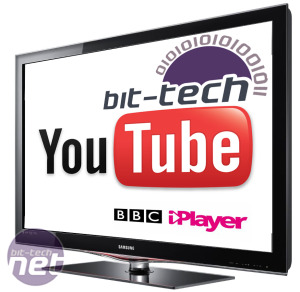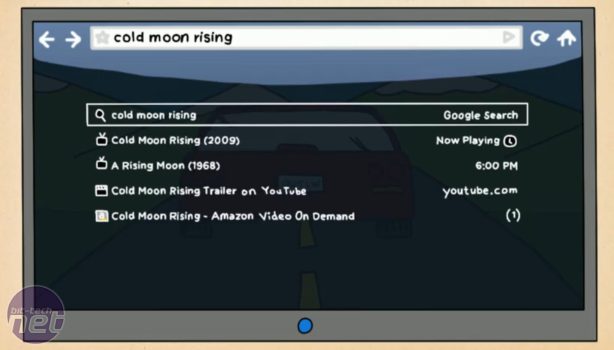
The Future?
Is this really the future of TV? Opinions differ. On the one hand, there’s no question that it’s getting harder to find programmes – or even the right episode of the right series of a given programme – across so many channels and services, and if there’s anything Google is good at, it’s search. Plus, if there’s a company with the technology and the relationships to make TV and the Web work together, it’s Google. On the other hand, there are questions over whether those of us who have bought a new TV in the last few years would buy another just to have Google’s platform, or whether we’d be prepared to pay out for a set-top-box that didn’t incorporate tuners or a PVR. Do we really need another box, more cables, and a wireless keyboard just to bring the Web to our TV set?
On the other hand, there are questions over whether those of us who have bought a new TV in the last few years would buy another just to have Google’s platform, or whether we’d be prepared to pay out for a set-top-box that didn’t incorporate tuners or a PVR. Do we really need another box, more cables, and a wireless keyboard just to bring the Web to our TV set?What’s more, it’s arguable that we’ve already got an effective way of using Internet-based applications while we watch TV, and without losing precious screen real estate. In May, MIT’s Technology Review magazine published an article on social TV where Marie-Josie Montpetit, a scientist working with MIT and BT on potential social TV services, argued that making connected TV work wasn’t a matter of cluttering the big screen with messages and widgets. Instead, “you’re going to interact with the content on your TV, but with another device.” If you think about it, this makes sense.
We’re already comfortable with using smartphones, notebooks and netbooks to tweet or update Facebook while we’re sat in front of the box, and Tablet devices like the iPad make an even more natural companion. As more devices become better connected and more sophisticated, this is a trend that might only expand.

Google search could come in really handy on your TV, but how will you enter text?
The question is: does Google TV really give us anything we don’t get already, that we really need? The answer? We won’t know that until we see the service launch over here, and give it a test drive for ourselves. Maybe the future sees Google TV as a unifying service across TV brands, replacing Bravia Internet TV for Sony and Viera Cast for Panasonic, and giving access to Web content on every connected set. Maybe not. Whatever happens, we can expect the Web to play a bigger part in the things we do and watch on our TVs, and how these activities tie in to our everyday lives.

MSI MPG Velox 100R Chassis Review
October 14 2021 | 15:04








Want to comment? Please log in.